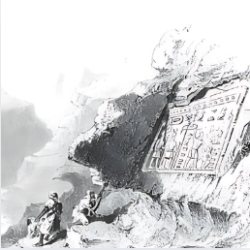A third dynamic can be seen in the counter-narrative offered by some Muslim women writers to the New Orientalism they detect in the work of their peers. This is something Fatemeh Keshavarz examines in her book Jasmine and Stars: Reading More Than Lolita in Tehran. As Keshavarz points out, the New Orientalist narrative often takes the form of eyewitness accounts which don't demand that their reader be informed about the context. Such books often "appeal to an ongoing post-9/11 sense of insecurity" by showing that "discontented people in the problem-ridden areas in the Middle East are by and large the monsters that you are afraid of."
Muslim women's memoirs often deal with what it means to be pulled between the polar forces of East and West, and whether it is possible to find balance in the midst of that cultural intersection. This tension can be seen even in the titles of the memoirs, as in Azadeh Moaveni's Lipstick Jihad, subtitled A Memoir of Growing Up Iranian in America and American in Iran.
Interestingly, in a New York Times review, Lipstick Jihad was described as "giv[ing] the reader a guided tour through the underground youth culture in Tehran." If reading a book is akin to taking a guided tour, in this case the writers themselves often travel between two worlds, their work creating not a perfect synthesis of cultures, but new structures which open up new ways of thinking, suggesting that East/West is often an oversimplification of modern mobility.
Tasnim Qutait is an M.A. candidate at Uppsala University, researching Muslim women's literature.
This article was first published at Altmuslimah.com, a Patheos content Partner.




